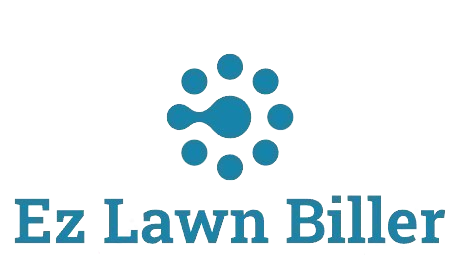How to Stay Compliant in Your Lawn Care Business
In the lawn care industry, compliance is not just a regulatory obligation but a cornerstone of building trust and credibility with your clients. Operating a lawn care business requires adherence to local, state, and federal laws, as well as industry standards that govern everything from pesticide application to employee safety.
This blog post will delve into the various aspects of compliance within the lawn care sector. We will explore regulatory requirements, best practices for maintaining compliance, and tools that can help streamline your operations, such as Lawn Biller Software.
Understanding compliance is crucial because failing to adhere to regulations can result in fines, legal action, and damage to your business’s reputation. Whether you’re a small, independent operator or managing a larger company, these insights will ensure that your lawn care business remains compliant and profitable.
Understanding Regulatory Requirements
Compliance in the lawn care industry begins with understanding the various regulatory bodies and guidelines that govern your operations. Federal agencies like the Environmental Protection Agency (EPA) set standards for pesticide use, while local municipalities might have specific ordinances regarding noise levels and working hours.
For example, the EPA requires that all pesticides used in lawn care be registered and approved. Operators must also adhere to specific application rates and safety protocols to minimize environmental impact. Familiarizing yourself with these regulations can help you avoid hefty fines and legal repercussions.
In addition to pesticide regulations, you should also be aware of labor laws that govern employee safety and wages. Compliance with Occupational Safety and Health Administration (OSHA) guidelines is essential in ensuring a safe working environment for your employees. This includes providing proper training on equipment usage and safety gear requirements.
Implementing Best Practices for Compliance
Once you are aware of the regulatory landscape, the next step is to implement best practices for remaining compliant. One effective method is to develop a compliance manual that outlines all relevant laws and company policies. This manual should be easily accessible to all employees and regularly updated to reflect any changes in regulations.
Another best practice is conducting regular training sessions for your team. By keeping your employees informed about the latest compliance requirements, you minimize the risk of violations and foster a culture of safety and responsibility. Additionally, documenting these training sessions can serve as proof of compliance should you ever face an audit.
Using technology can also significantly enhance your compliance efforts. Software like Lawn Biller Software can help you manage billing and service documentation, ensuring that all business transactions are accurately recorded. This not only streamlines your operations but also provides a reliable audit trail.
Maintaining Accurate Records
Accurate record-keeping is a fundamental aspect of compliance in the lawn care industry. You are required to maintain detailed records of pesticide applications, employee training, and any incidents that may occur on the job. These records not only help you stay compliant but also protect your business in case of disputes.
Consider using a digital platform for record-keeping. A lawn service software like Lawn Biller Software can simplify this process by allowing you to store all necessary documentation in one place. This includes service logs, client communications, and payment histories, which can be crucial during inspections or audits.
It’s also essential to understand the retention period for different types of records. For example, pesticide application records may need to be kept for a specific number of years, depending on state regulations. Familiarizing yourself with these requirements ensures that you never inadvertently destroy important documents.
Utilizing Technology for Compliance
In today’s digital age, leveraging technology can significantly ease the burden of compliance. From billing to service tracking, technology can streamline many aspects of your lawn care operations. Tools like Lawn Biller Software provide automated invoicing and service management features that reduce the likelihood of human error.
Mobile apps can also facilitate compliance by allowing employees to log services and document pesticide applications in real-time. This not only enhances accuracy but also ensures that you have up-to-date records at your fingertips. Additionally, mobile access to essential data can empower your team to make informed decisions on the job.
Furthermore, many software solutions offer reporting features that can help you analyze your compliance status over time. By regularly reviewing these reports, you can identify areas for improvement and ensure that your business stays on the right side of the law.
Staying Updated on Regulatory Changes
Regulations in the lawn care industry are not static; they evolve over time. Staying informed about changes in laws and regulations is vital for maintaining compliance. Subscribe to industry newsletters, join relevant associations, and engage with local regulatory agencies to keep yourself updated.
You can also participate in training sessions and workshops that focus on compliance issues. Networking with other lawn care professionals can provide insights into how they manage compliance challenges.
Additionally, consider appointing a compliance officer within your business. This individual would be responsible for monitoring regulatory changes, ensuring that all staff are trained, and maintaining compliance records. Having a dedicated resource can help you stay organized and proactive in your compliance efforts.
Creating a Culture of Compliance
Building a culture of compliance within your lawn care business is essential for long-term success. This starts with leadership—owners and managers must model compliant behavior and communicate its importance to the entire team.
Encouraging open discussions about compliance can make employees feel more comfortable reporting issues or asking questions. Regular team meetings can be a platform for discussing compliance challenges and sharing best practices.
Recognizing and rewarding compliant behavior can also reinforce a culture of accountability. Whether it’s through informal shout-outs or more formal recognition programs, incentivizing compliance encourages employees to prioritize safety and regulatory adherence in their daily tasks.
The Role of Client Education
Educating your clients about your compliance practices can improve trust and transparency. Clients appreciate businesses that prioritize safety and environmental responsibility. When discussing your services, highlight how you adhere to industry regulations and the steps you take to protect their property and the environment.
Consider sharing resources or articles that explain the importance of compliance in lawn care. This not only positions you as an industry expert but also fosters a sense of partnership in maintaining a healthy lawn and landscape.
Additionally, providing clients with clear information about the products you use, their safety, and the measures you take can alleviate any concerns they might have. Transparency in your practices can lead to stronger client relationships and increased loyalty.
Conclusion
Maintaining compliance in your lawn care business is not merely about following regulations; it is about building a reputable brand and ensuring the safety of your employees and clients. By understanding regulatory requirements, implementing best practices, and leveraging technology, you can create a solid foundation for compliance.
Regular training, accurate record-keeping, and staying informed about changes in regulations play crucial roles in your compliance strategy. Moreover, fostering a culture of compliance within your team and educating your clients can further solidify your commitment to operational excellence.
As you prepare to navigate the complexities of compliance, consider utilizing tools like Lawn Biller Software to simplify your processes. By investing in the right solutions, you can focus on what you do best—providing exceptional lawn care services while ensuring your business remains compliant and thriving.




